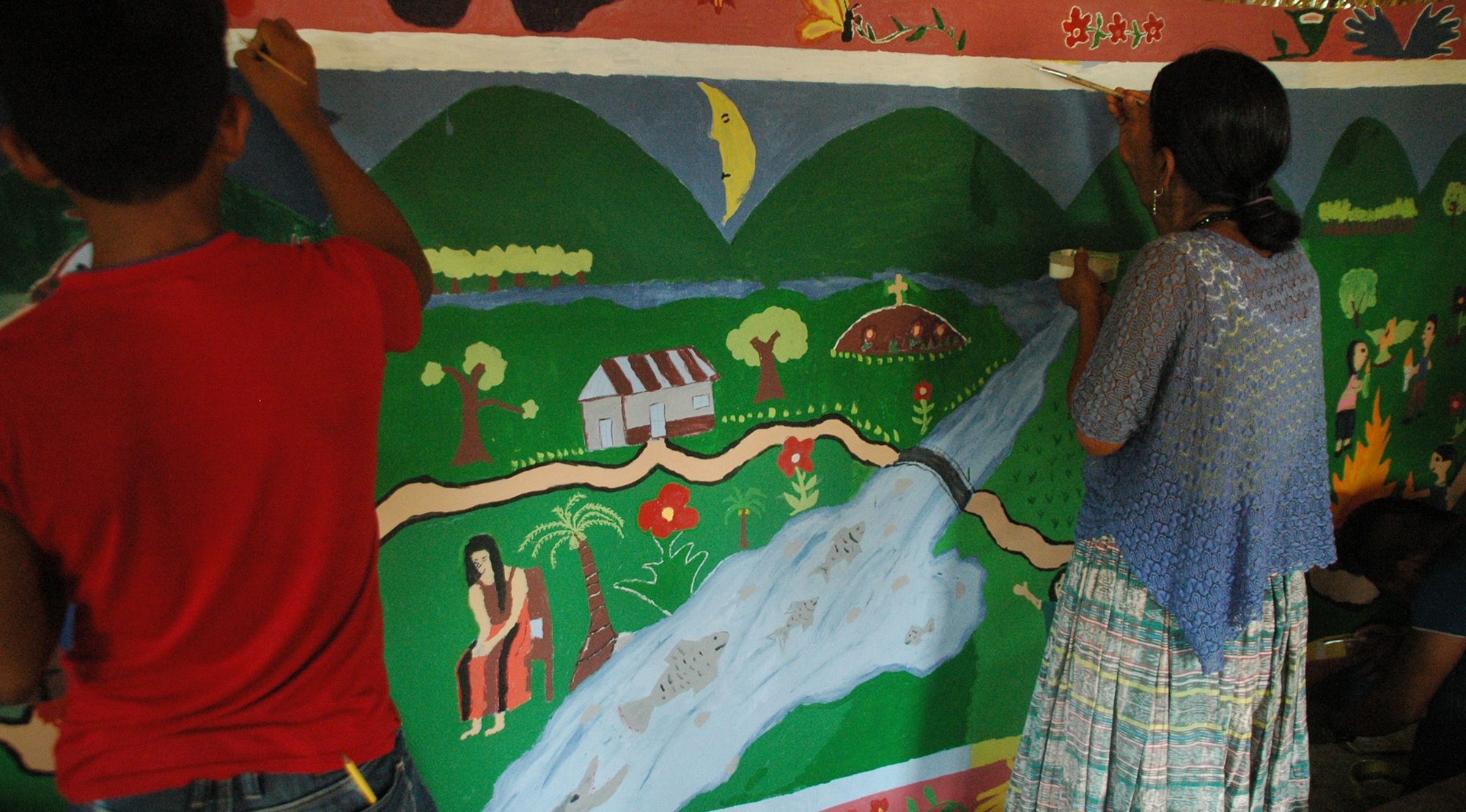A society cannot rebuild following violent conflict unless it comes to terms with the past. Both individual and collective traumas have a role to play here. And this is the philosophy adopted in the field of psychosocial work for the past 18 years by the Zivile Friedensdienst (Civil Peace Service – ZFD), which is part of the Deutsche Gesellschaft für Internationale Zusammenarbeit (German Corporation for International Cooperation – GIZ). From the outset, the program has featured approaches such as promoting dialog and “dealing with the past” as well as trauma work and the psychosocial rehabilitation of victims of violence.
Currently, ten professionals deployed by the ZFD are working with the psychosocial approach in various post-conflict countries and advising NGOs, university departments, and advisory centers. In Guatemala, for example, a professional from the ZFD is helping the organization known as ECAP (Equipo de Estudios Comunitarios y Acción Psicosocial) develop innovative advisory and therapy methods for victims of sexual violence. These methods include creating “murales” (murals). In Cambodia, a colleague from the master’s program for Clinical Psychology at the Department of Psychology of the Royal University of Phnom Penh is providing advice on university-level training for trauma therapists. In Burundi, the ZFD is supporting the professionalization of a network responsible, in the current political crisis, for delivering and coordinating psychosocial care in rural areas.
The psychosocial approach enables people to understand the specific context of the conflict in question, encourages them to deal with the past, and provides ways of tying things in with the existing resources of those affected. The ZFD professionals adopt a participatory take on this work, try to “stick to basics”, and pick up on existing local approaches to trauma processing. It is hoped that coming to terms with the traumatic past or present, from either a victim’s or perpetrator’s perspective, will help people develop ways of living together without violence. The ZFD projects use various methods such as therapeutic play, dialog forums, discussion groups, and life skills training courses or resource-based exercises like mindfulness and meditation.
Years of being confronted with the suffering of those affected by war and violence can leave its mark on people. With this in mind, and in keeping with the principle of “caring for the helper”, the ZFD is also increasingly offering psychosocial support to employees.


